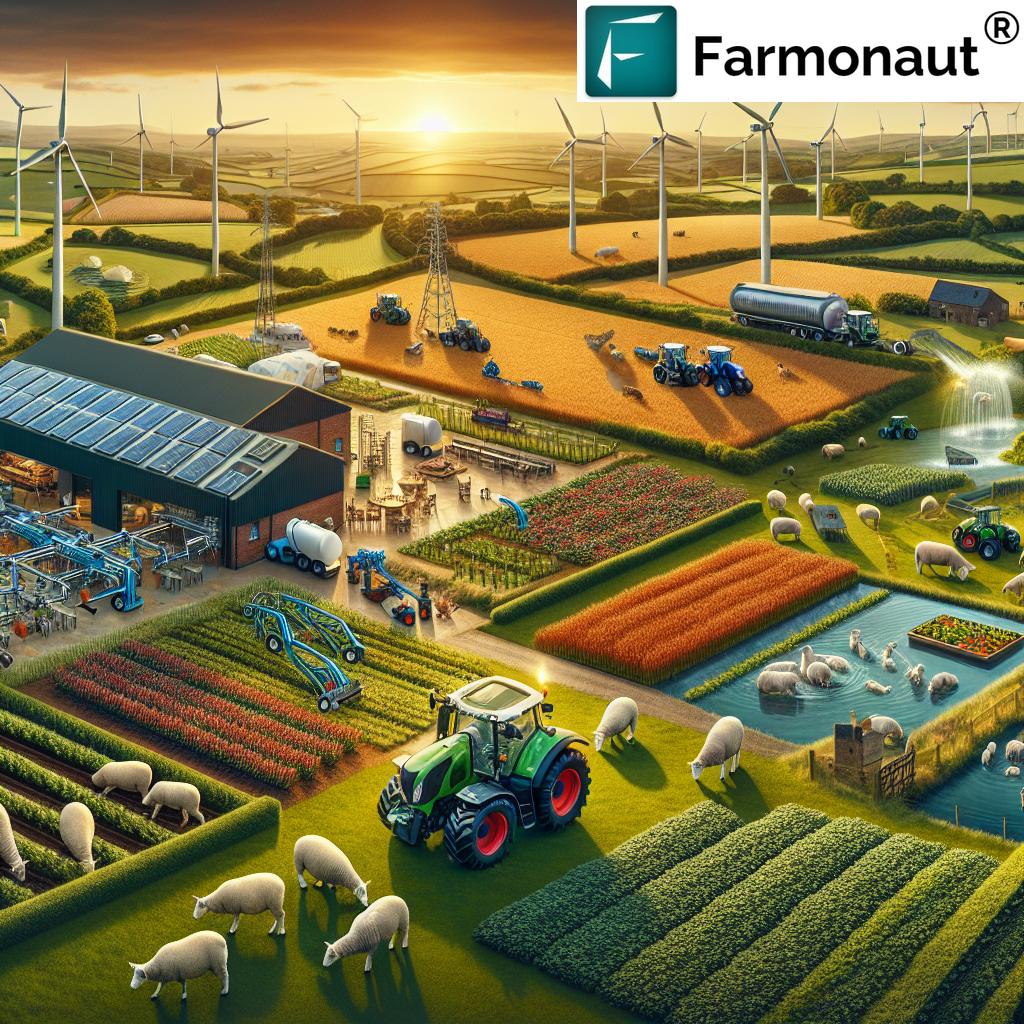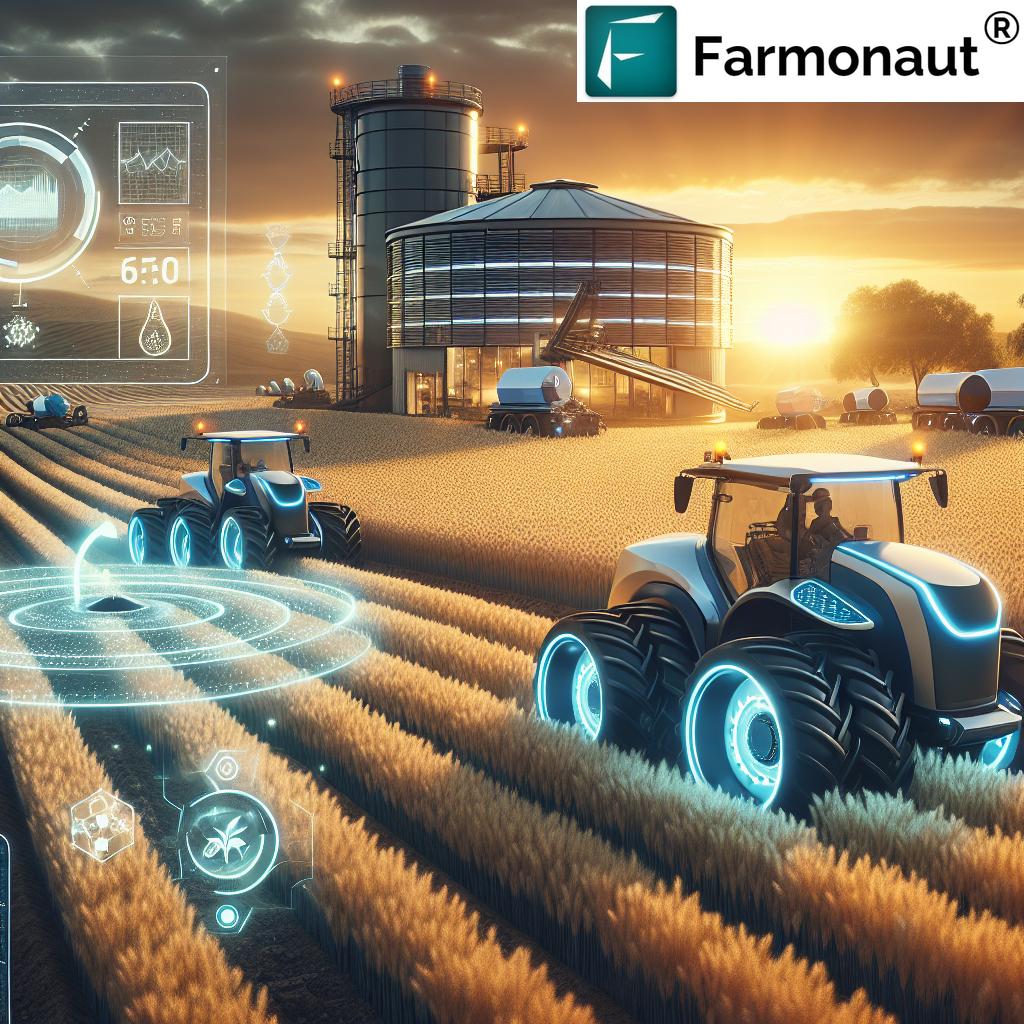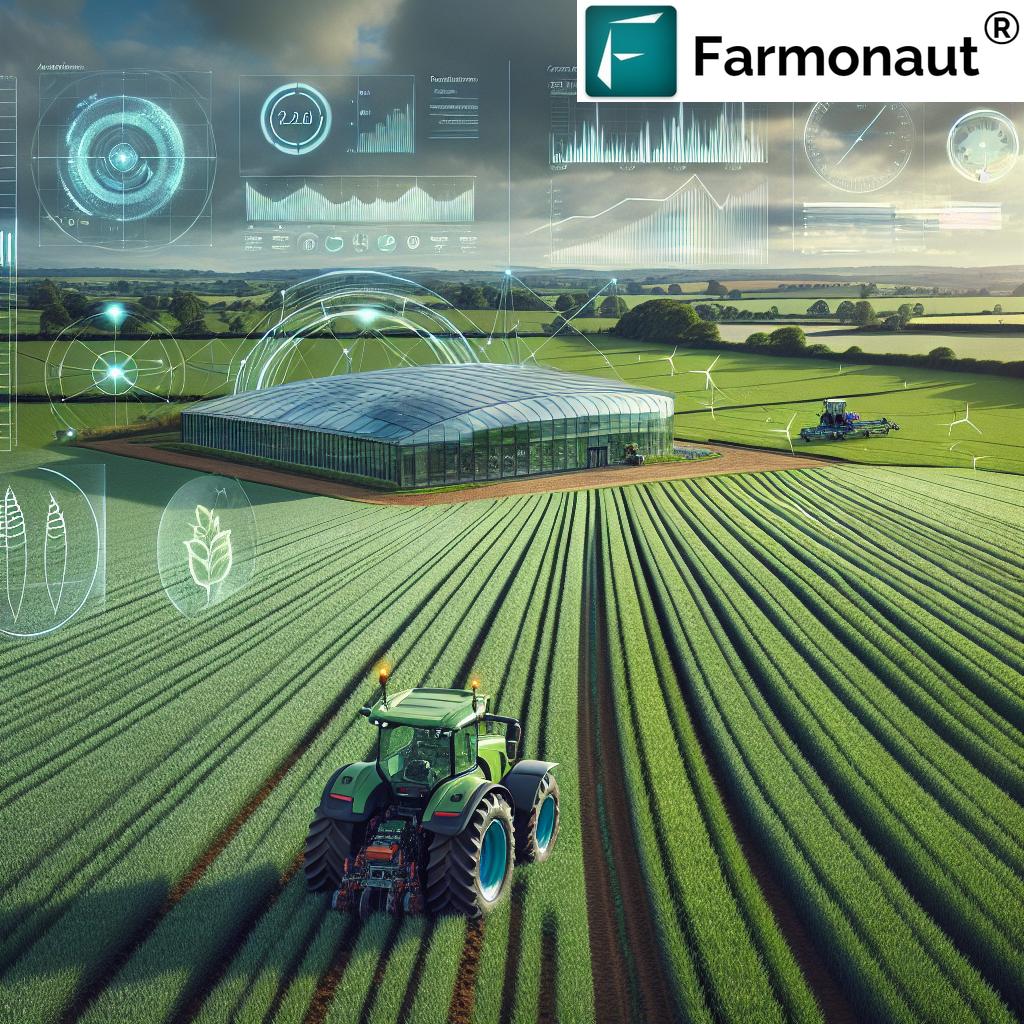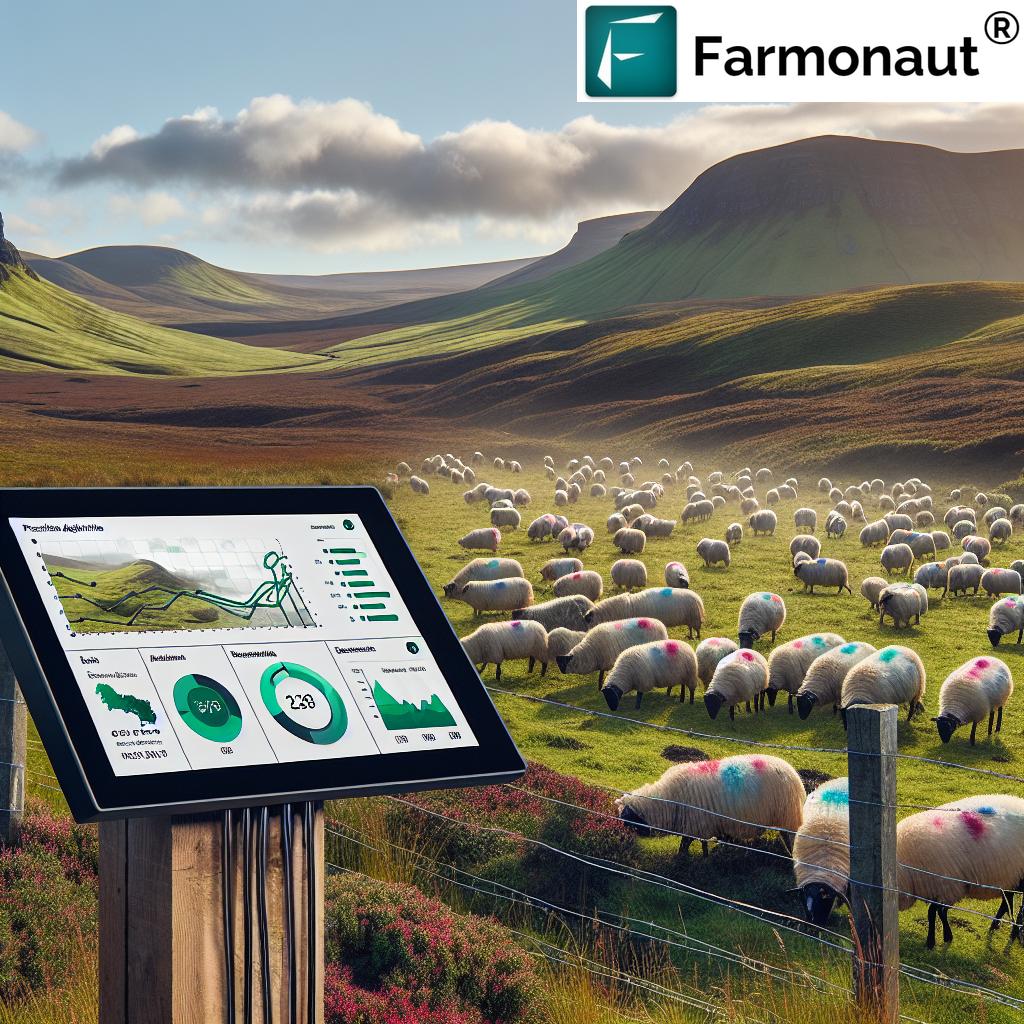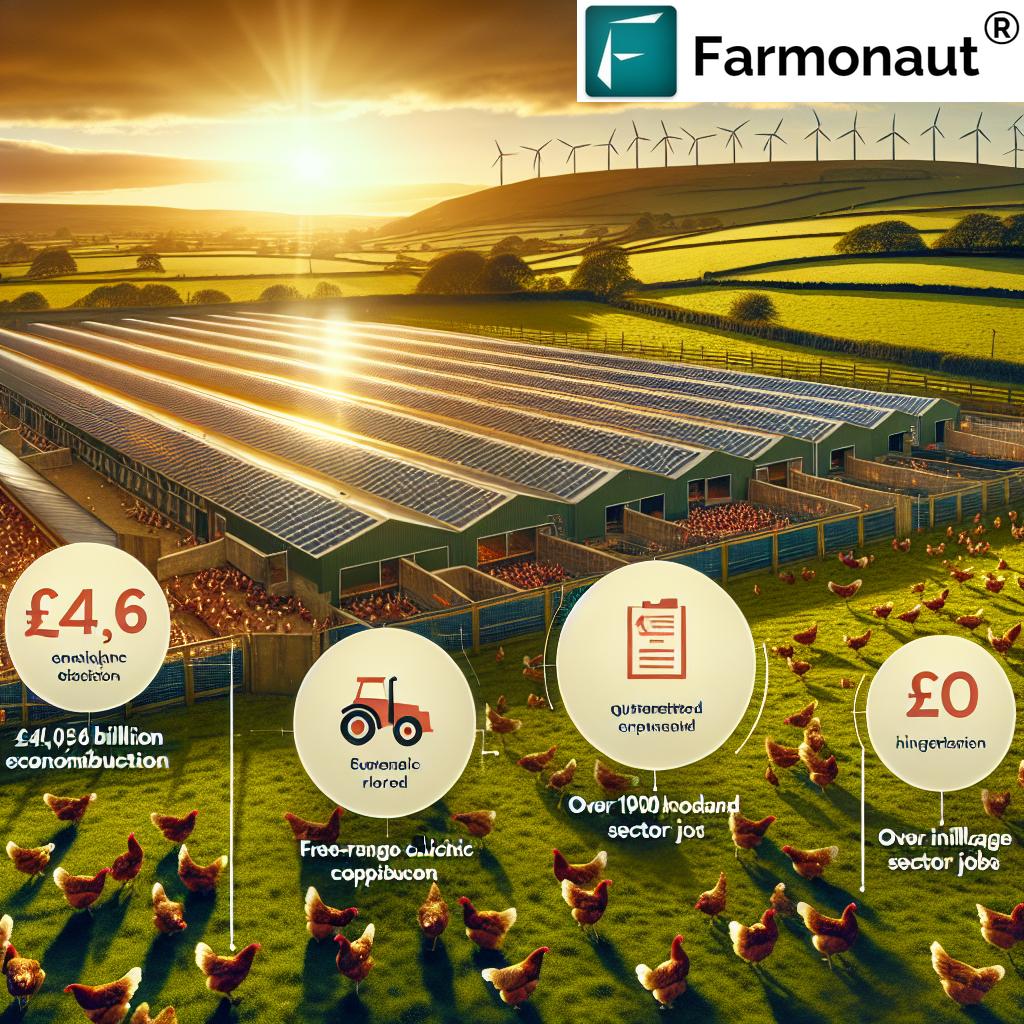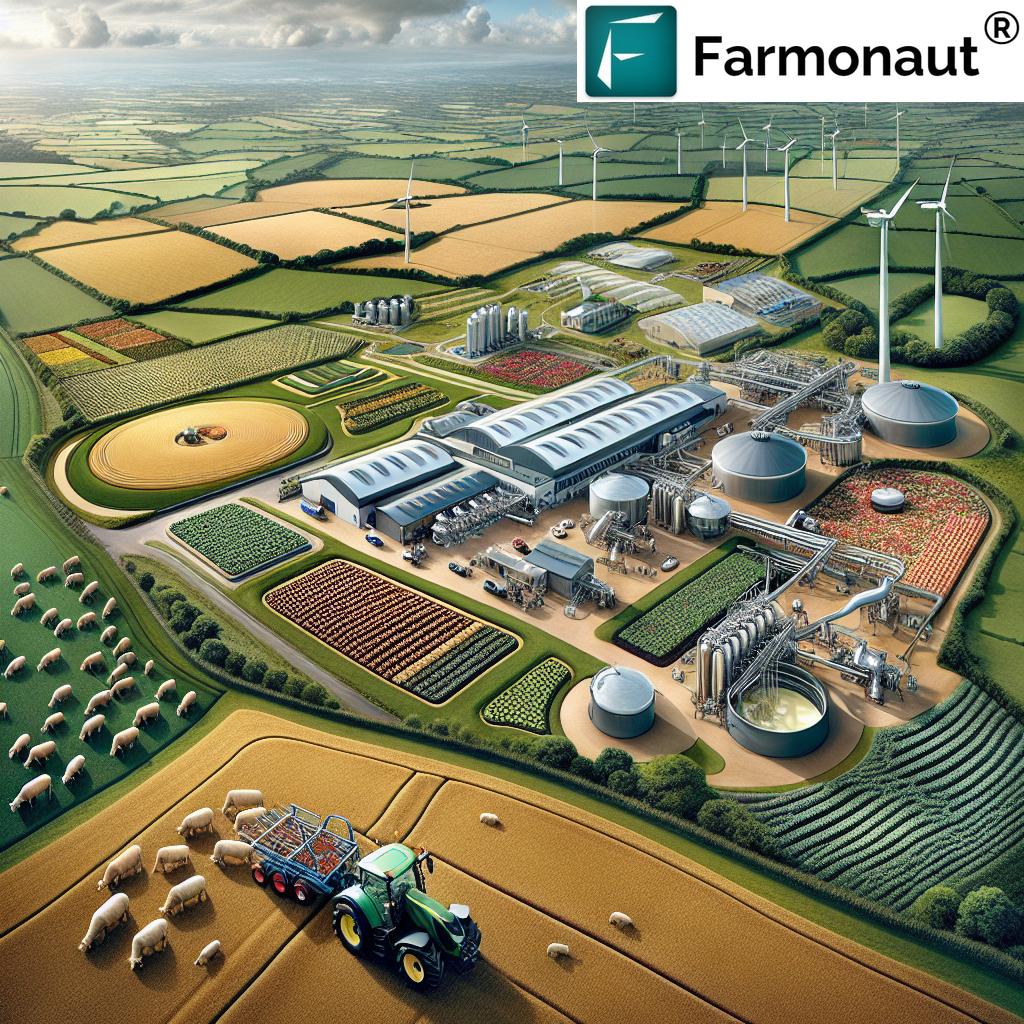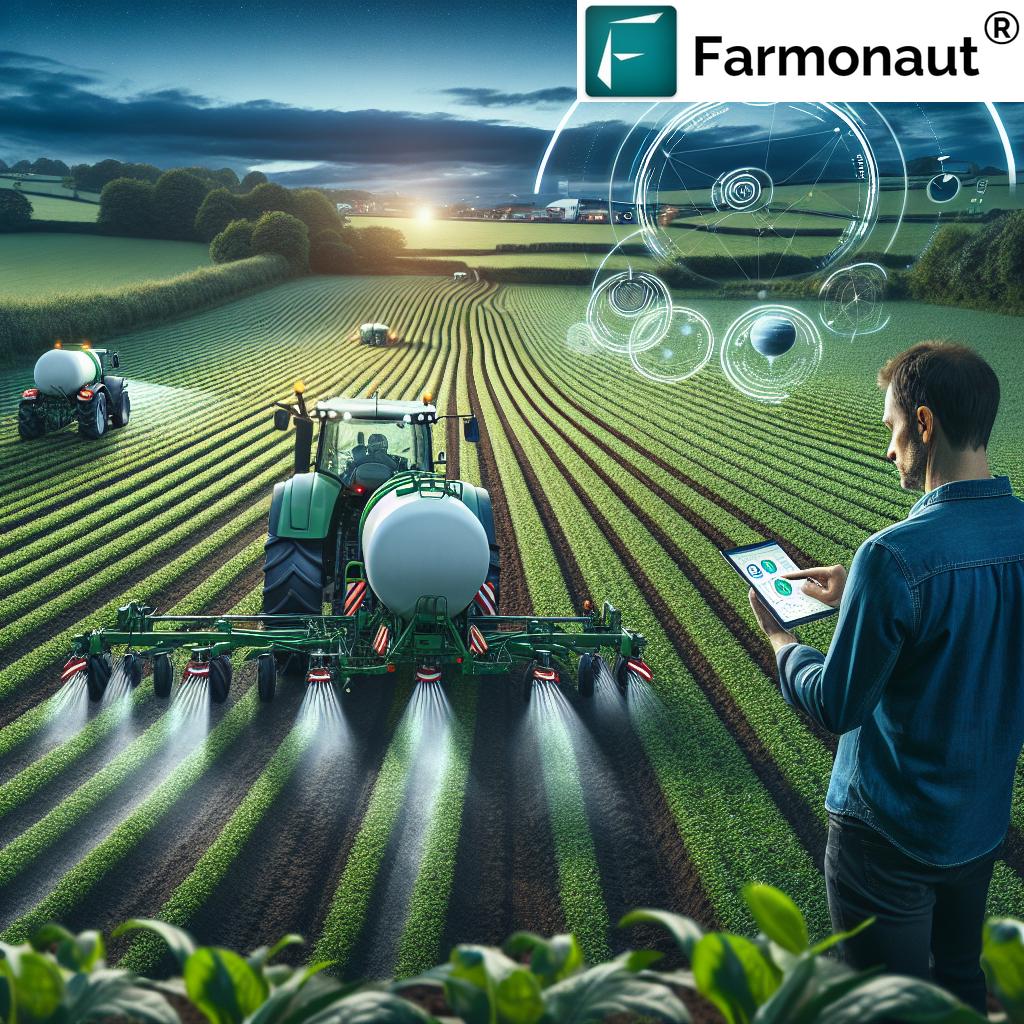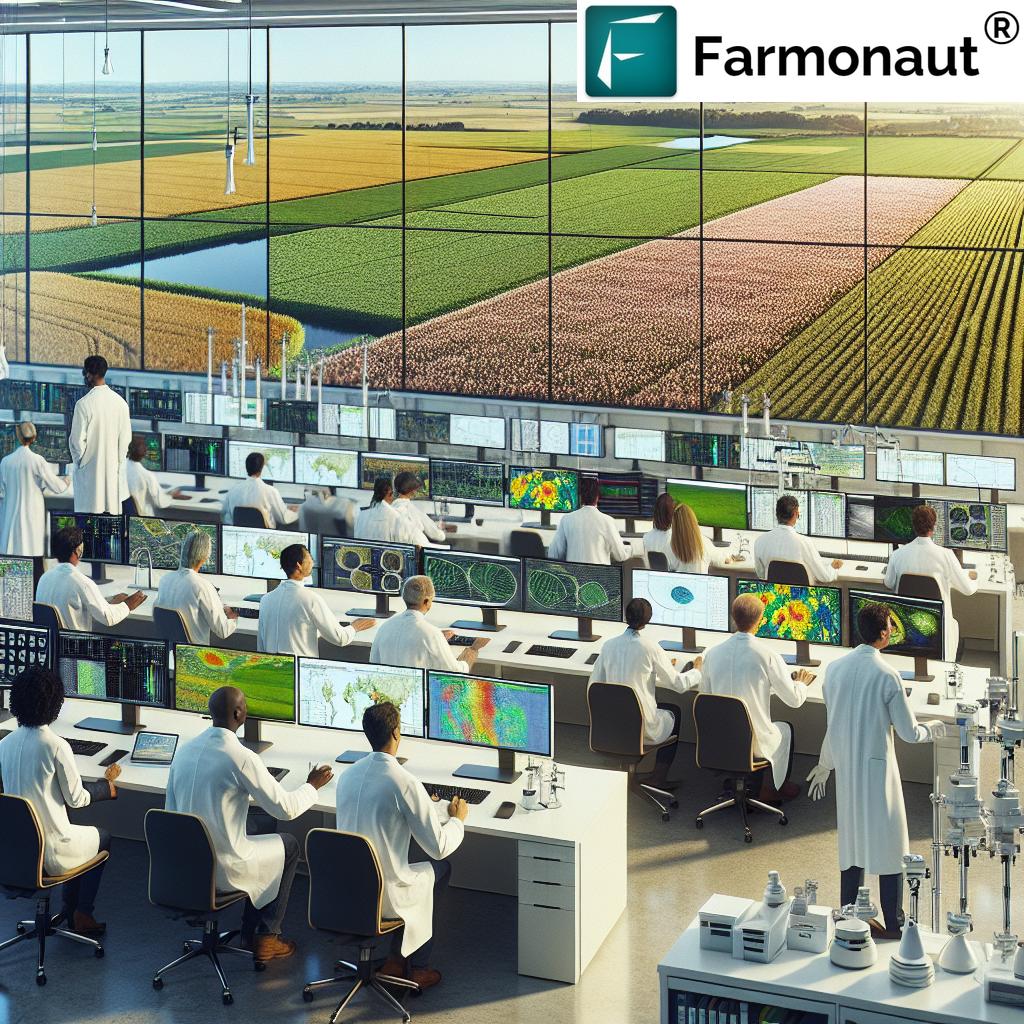Brexit’s Impact on UK Farming: Navigating Agricultural Challenges and Opportunities in a Post-EU Landscape
“Brexit could potentially affect up to 70% of UK food imports, reshaping the agricultural landscape and market dynamics.”
As we delve into the complex world of post-Brexit British agriculture, it’s crucial to understand the profound changes and challenges facing UK farmers. In this comprehensive analysis, we’ll explore how Brexit has reshaped the agricultural landscape, examining the hurdles and opportunities that have emerged in its wake. From new trade dynamics to evolving agricultural policies, we’ll uncover how the UK farming sector is adapting to this new era.
The Changing Face of UK Agriculture Post-Brexit
Brexit has ushered in a new chapter for UK farming, one filled with both uncertainty and potential. The departure from the European Union has necessitated a reimagining of agricultural practices, policies, and trade relationships. Let’s examine the key areas where Brexit’s impact is most keenly felt:
- Trade tariffs and new market dynamics
- Agricultural policy overhaul
- Food safety and quality standards
- Labor shortages and workforce challenges
- Environmental and sustainability considerations
These factors are reshaping how British farmers operate, forcing them to adapt to a rapidly changing landscape. At Farmonaut, we’re committed to supporting farmers through these transitions with our advanced satellite-based farm management solutions.
Trade Tariffs and New Market Realities
One of the most immediate and significant impacts of Brexit on UK farming has been the introduction of new trade barriers. The EU was previously the UK’s largest agricultural trading partner, accounting for a substantial portion of both imports and exports. Post-Brexit, UK farmers face:
- Increased export costs: New tariffs and customs procedures have made exporting to the EU more expensive and complex.
- Competition from global markets: As the UK seeks new trade deals, farmers may face increased competition from international producers.
- Shifting demand patterns: Changes in trade relationships are altering the demand for certain agricultural products both domestically and internationally.
These challenges are particularly acute for sectors like sheep farming, where a significant portion of lamb exports were previously destined for EU markets. However, they also present opportunities for farmers to explore new markets and diversify their product offerings.

The UK Agriculture Bill: A New Policy Framework
“The UK agriculture bill aims to transform farming practices for over 70% of Britain’s land area used for agriculture.”
The UK Agriculture Bill, introduced post-Brexit, represents a significant shift in agricultural policy. This legislation aims to replace the EU’s Common Agricultural Policy (CAP) with a system that focuses on:
- Environmental stewardship
- Sustainable farming practices
- Animal welfare
- Productivity improvements
Under this new framework, farmers will be rewarded for providing ‘public goods’ such as clean air, water, and enhanced biodiversity. This marks a departure from the CAP’s area-based payments, encouraging farmers to adopt more sustainable and environmentally friendly practices.
Climate Adaptation in Agriculture: A Growing Priority
Climate change presents one of the most significant challenges to UK agriculture. Brexit has coincided with an increased focus on climate adaptation strategies. Farmers are now grappling with:
- Unpredictable weather patterns affecting crop yields
- The need for drought-resistant crop varieties
- Flood management and soil conservation
- Reducing greenhouse gas emissions from farming practices
At Farmonaut, we recognize the critical importance of climate adaptation in agriculture. Our satellite-based crop health monitoring system provides real-time data on vegetation health, soil moisture levels, and other crucial metrics. This information empowers farmers to make informed decisions about irrigation, fertilizer usage, and pest management, ultimately optimizing crop yields while conserving resources.
Agricultural Technology Advancements: The Path Forward
In the face of Brexit-related challenges, agricultural technology advancements are playing a crucial role in helping UK farmers adapt and thrive. These innovations include:
- Precision agriculture techniques
- AI-driven farm management systems
- Drone technology for crop monitoring
- Blockchain for supply chain transparency
Farmonaut is at the forefront of these technological advancements, offering cutting-edge solutions that help farmers navigate the complexities of post-Brexit agriculture. Our Jeevn AI Advisory System, for instance, delivers real-time insights and expert crop management strategies, helping farmers improve productivity and efficiency in these uncertain times.

Wheat Supply Challenges in Post-Brexit UK
The UK’s wheat sector has faced significant challenges post-Brexit. As one of the country’s most important arable crops, wheat has been impacted by:
- Changes in trade dynamics affecting both imports and exports
- Increased competition from global wheat producers
- Climate-related yield fluctuations
These challenges have led to volatility in wheat prices and supply, affecting not only farmers but also downstream industries such as flour milling and bakery. To address these issues, UK wheat farmers are exploring:
- Diversification of wheat varieties to improve resilience
- Adoption of precision farming techniques to optimize yields
- Development of new market opportunities, both domestically and internationally
Farmonaut’s satellite-based monitoring can play a crucial role in helping wheat farmers optimize their crop management strategies, providing real-time data on crop health and growth patterns.
Potato Production: Adapting to New Realities
The UK’s potato sector, another vital component of the country’s agriculture, has also experienced significant changes post-Brexit. Key challenges include:
- Disruptions in seed potato trade with the EU
- Changes in demand patterns due to shifting consumer behaviors
- Increased pressure on yields due to climate variability
To address these challenges, potato farmers are:
- Investing in storage and processing facilities to extend the selling season
- Exploring new varieties suited to changing climate conditions
- Adopting precision agriculture techniques to improve efficiency
Farmonaut’s technology can assist potato farmers by providing accurate crop area estimation and health monitoring, enabling more precise management of potato crops.
Livestock Sector: Navigating New Terrain
The UK’s livestock sector, including cattle and sheep farming, has been significantly impacted by Brexit. Key challenges include:
- Changes in export regulations affecting meat and dairy products
- Potential competition from international producers under new trade deals
- Evolving animal welfare standards and environmental regulations
In response, livestock farmers are:
- Exploring new markets for their products
- Investing in technologies to improve animal welfare and productivity
- Adopting sustainable grazing practices to meet environmental goals
While Farmonaut’s primary focus is on crop monitoring, our technology can also benefit livestock farmers by providing accurate pasture health assessments and helping optimize grazing patterns.
Farm Diversification Strategies in a Post-Brexit World
Farm diversification has become increasingly important as UK farmers seek to spread risk and create new income streams in the post-Brexit landscape. Popular diversification strategies include:
- Agritourism and farm stays
- On-farm processing and direct-to-consumer sales
- Renewable energy projects, such as solar or wind farms
- Contract farming or machinery sharing schemes
Farmonaut’s technology can support diversification efforts by providing farmers with data-driven insights to optimize their core agricultural operations, freeing up resources for new ventures.
Explore Farmonaut’s API Solutions
The Role of Renewables in UK Farming
Renewable energy has emerged as a significant opportunity for UK farmers in the post-Brexit era. The adoption of renewables offers multiple benefits:
- Diversification of income streams
- Reduction in energy costs
- Contribution to the UK’s climate goals
Common renewable projects on UK farms include:
- Solar panel installations on farm buildings or less productive land
- Wind turbines in suitable locations
- Biomass boilers using farm waste or energy crops
- Anaerobic digesters for biogas production
While Farmonaut’s core services focus on crop monitoring and management, our technology can indirectly support renewable energy projects by helping farmers optimize their land use and identify areas suitable for renewable installations.
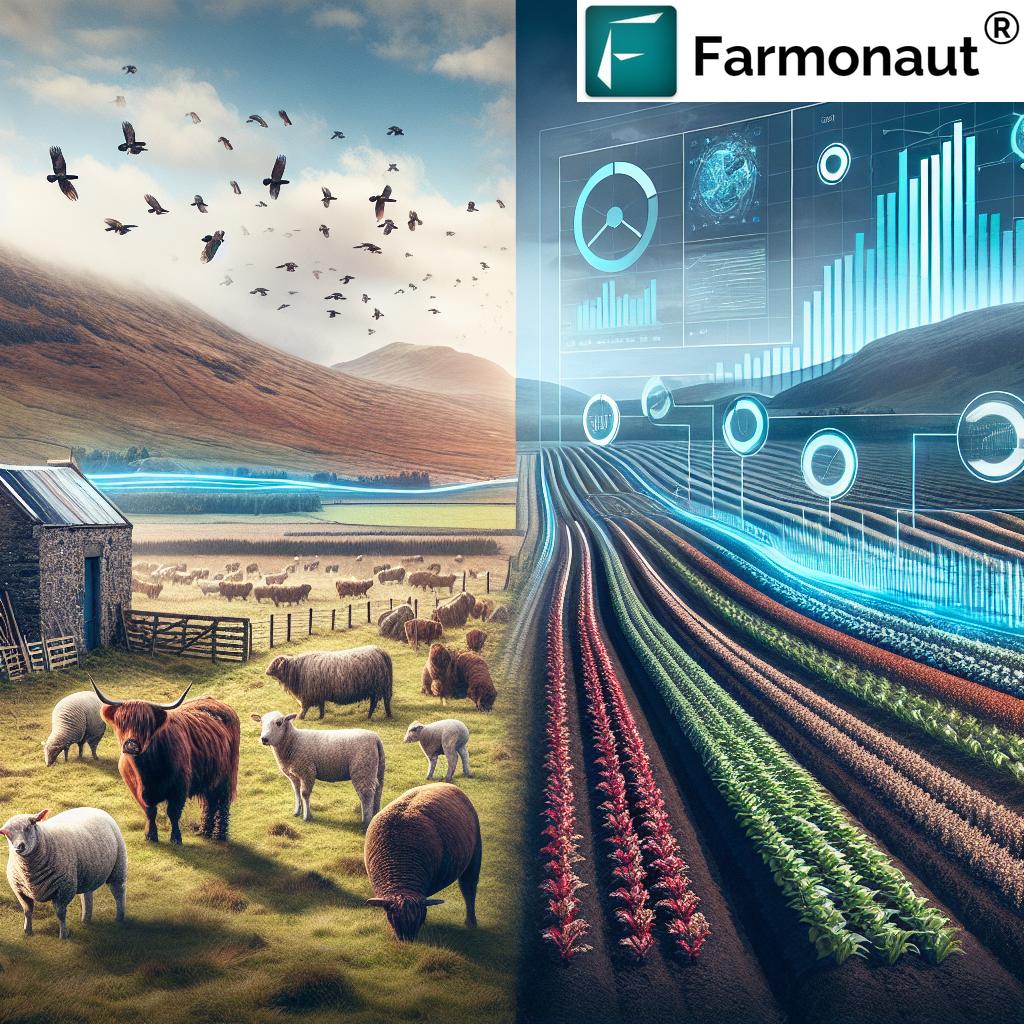
Scottish Agriculture: Unique Challenges and Opportunities
Scottish agriculture faces distinct challenges and opportunities in the post-Brexit landscape. Key considerations include:
- The importance of EU markets for Scottish beef and lamb exports
- Potential divergence in agricultural policies between Scotland and the rest of the UK
- Unique geographical and climatic conditions affecting farming practices
Scottish farmers are adapting by:
- Exploring new export markets, particularly for high-quality meat and dairy products
- Investing in agri-tourism to capitalize on Scotland’s natural beauty
- Adopting precision farming techniques suitable for Scottish conditions
Farmonaut’s satellite-based monitoring can be particularly valuable in Scotland’s varied terrain, providing accurate crop health data even in remote or challenging locations.
Global Market Demands: New Opportunities for UK Farmers
While Brexit has disrupted traditional trade relationships, it has also opened up new possibilities for UK farmers to engage with global markets. Key trends include:
- Growing demand for high-quality, traceable food products
- Increasing interest in organic and sustainably produced foods
- Opportunities in emerging markets for UK agricultural expertise and technology
To capitalize on these opportunities, UK farmers are:
- Investing in quality assurance and traceability systems
- Developing niche, high-value products for export markets
- Collaborating with international partners to share knowledge and technology
Farmonaut’s blockchain-based traceability solutions can play a crucial role in helping UK farmers meet global demands for transparent and sustainable food production.
The Impact of the Pandemic on Post-Brexit Agriculture
The COVID-19 pandemic has added another layer of complexity to the post-Brexit agricultural landscape. Key impacts include:
- Disruptions to supply chains and labor availability
- Changes in consumer behavior and food purchasing patterns
- Increased focus on food security and local production
These challenges have accelerated certain trends in UK agriculture, such as:
- Adoption of automation and digital technologies to reduce reliance on manual labor
- Development of more resilient, localized food supply chains
- Increased investment in direct-to-consumer sales channels
Farmonaut’s technology has proven particularly valuable during this period, enabling remote monitoring and management of farms when physical access was limited.
Agricultural Efficiency Improvements: A Necessity in the New Era
In the face of Brexit-related challenges and global competition, improving agricultural efficiency has become more critical than ever for UK farmers. Key areas of focus include:
- Precision agriculture techniques to optimize input use
- Smart farming technologies for better decision-making
- Improved crop varieties and livestock breeds for higher yields and resilience
- Enhanced water management and irrigation systems
Farmonaut’s suite of tools, including our AI-driven advisory system and satellite-based monitoring, are designed to support these efficiency improvements, helping farmers do more with less.
Sustainable Farming Practices: The Future of UK Agriculture
Sustainability has moved to the forefront of agricultural policy and practice in the post-Brexit UK. Key focus areas include:
- Soil health and conservation
- Biodiversity enhancement
- Reduction of chemical inputs
- Water conservation and management
Farmers are adopting practices such as:
- Cover cropping and crop rotation
- Integrated pest management
- Agroforestry and hedgerow restoration
- Precision application of inputs to minimize environmental impact
Farmonaut’s technology supports these sustainable practices by providing precise data on crop health and soil conditions, enabling farmers to make informed decisions that balance productivity with environmental stewardship.
The Future of British Farming: Adapting to a Changing Landscape
As we look to the future, it’s clear that UK farming is entering a period of significant transformation. Success in this new era will depend on:
- Embracing innovation and technology
- Developing resilient and diversified business models
- Adapting to climate change and environmental pressures
- Building strong connections with consumers and markets
While challenges remain, there are also exciting opportunities for those willing to adapt and innovate. Farmonaut is committed to supporting UK farmers through this transition, providing the tools and insights needed to thrive in a post-Brexit world.
Download Farmonaut’s Mobile Apps:


Brexit’s Impact on UK Farming Sectors: A Comparative Analysis
| Farming Sector | Pre-Brexit Status | Post-Brexit Challenges | Potential Opportunities | Farmonaut’s Technology Solutions |
|---|---|---|---|---|
| Arable Crops | Stable EU market access, CAP subsidies | New trade barriers, subsidy changes | Global market access, crop diversification | Satellite-based crop health monitoring, AI-driven advisory |
| Livestock | Strong EU export market, especially for lamb | Export complications, potential tariffs | New markets, focus on high-quality products | Pasture health assessment, resource management tools |
| Dairy | Integrated EU supply chains | Trade disruptions, labor shortages | Value-added products, domestic market focus | Efficient resource management, productivity optimization |
| Horticulture | Reliance on EU seasonal workers | Labor shortages, increased costs | Automation, protected cropping | Precision agriculture tools, crop yield optimization |
Frequently Asked Questions
Q1: How has Brexit affected UK farmers’ access to EU markets?
A1: Brexit has introduced new trade barriers, including tariffs and customs procedures, making it more challenging and expensive for UK farmers to export to EU markets. This has particularly impacted sectors like sheep farming, where a significant portion of exports were previously destined for the EU.
Q2: What changes have been made to agricultural subsidies post-Brexit?
A2: The UK has moved away from the EU’s Common Agricultural Policy (CAP) towards a system that rewards farmers for providing ‘public goods’ such as environmental stewardship and sustainable farming practices. This represents a significant shift from area-based payments to outcome-focused support.
Q3: How are UK farmers adapting to new trade relationships?
A3: UK farmers are exploring new export markets, diversifying their product offerings, and focusing on high-quality, niche products. Many are also investing in direct-to-consumer sales channels and developing stronger domestic supply chains.
Q4: What role is technology playing in helping farmers navigate post-Brexit challenges?
A4: Technology, including precision agriculture tools, AI-driven farm management systems, and satellite-based monitoring, is helping farmers improve efficiency, reduce costs, and make data-driven decisions. Companies like Farmonaut are providing advanced solutions to support farmers in this transition.
Q5: How is climate change affecting UK agriculture in the post-Brexit era?
A5: Climate change is leading to more unpredictable weather patterns, affecting crop yields and livestock management. UK farmers are increasingly focusing on climate adaptation strategies, including adopting drought-resistant crops, improving water management, and investing in sustainable farming practices.
In conclusion, while Brexit has undoubtedly presented significant challenges to UK agriculture, it has also spurred innovation and adaptation across the sector. From embracing new technologies to exploring diverse market opportunities, British farmers are showing resilience and creativity in navigating this new landscape. As we move forward, the continued adoption of advanced agricultural technologies, sustainable practices, and flexible business models will be crucial in ensuring the long-term success and sustainability of UK farming in a post-Brexit world.


